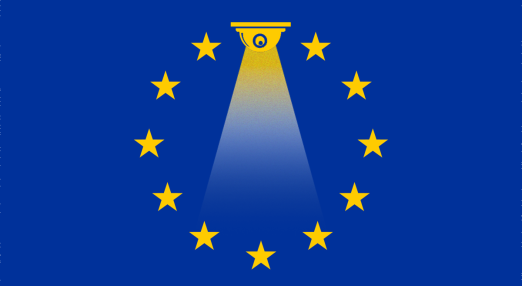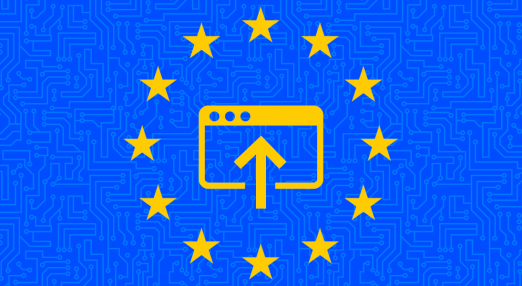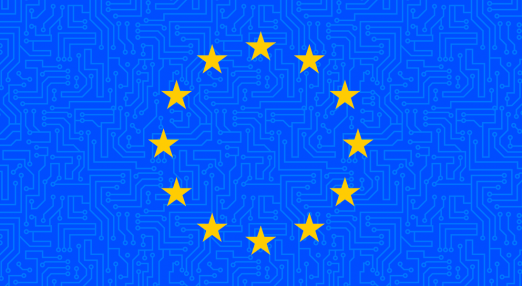interoperability
Filter by...
-

Building the biometric state: Police powers and discrimination
This report examines the development and deployment of biometric identification technologies by police and border forces in Europe, and warns that the increasing use of the technology is likely to exacerbate existing problems with racist policing and ethnic profiling.
Read more
-

DMA: European Parliament takes first steps towards limiting gatekeeper power and providing real choices for people
Today, the European Parliament has approved its position on the Digital Markets Act (DMA). While unfortunately, it scales down the DMA scope by limiting who will be considered a gatekeeper, the Parliament position adds a number of notable improvements from a digital rights perspective that help challenge digital gatekeepers’ overwhelming power.
Read more
-

Digital Services Act: EU Parliament’s key committee rejects a filternet but concerns remain
The European Union's Digital Services Act (DSA) is a big deal. It's the most significant reform of Europe’s internet platform legislation in twenty years and the EU Commission has proposed multiple new rules to address the challenges brought by the increased use of services online. EU members of Parliament (MEPs) showed that they listened to civil society voices: Even though the key committee on internal market affairs (IMCO) did not follow the footsteps of the ambitious DSA reports from last year, MEPs took a stance for the protection of fundamental rights.
Read more
-

Has the Parliament effectively wielded the Digital Services Act to challenge platform power? The verdict is, somewhat.
Today, the European Parliament Committee on the Internal Market and Consumer Protection (IMCO) has approved its much-anticipated report on the Digital Services Act (DSA). The DSA affects how intermediaries like Google and Amazon regulate and influence user activity on their platforms, including people's ability to exercise their rights and freedoms online. The DSA also aims at limiting the negative impact of the most powerful online platforms on people and puts limits on how EU Member States can interfere with people’s free expression online.
Read more
-

EU Parliament Takes First Step Towards a Fair and Interoperable Market
The EU’s Proposal for a Digital Market Act (DMA) is an attempt to create a fairer and more competitive market for online platforms in the EU. It sets out a standard for very large platforms, which act as gatekeepers between business users and end users. As gatekeepers “have substantial control over the access to, and are entrenched in digital markets,” the DMA sets out a list of dos and don'ts with which platforms will have to comply.
Read more
-

Two steps forward, one step back: DMA must do more to free people from digital walled gardens
The European Parliament Committee on the Internal Market and Consumer Protection (IMCO) report on the Digital Markets Act (DMA) makes improvements to the DMA but also includes serious loopholes that need to be fixed in trilogue
Read more
-

Top system and the right to repair
Some questions take thirty years to answer, even if just partially. In the early ’90s of the previous century, the EU legislative process was a battleground of American tech behemoths and some national champions from the EU. The legislative dossier was what was to become the 1991 Software Directive. And it was seen as an opportunity for European tech companies and others to break the hegemony of IBM through interoperability.
Read more
-

Dominant tech companies make their products incompatible deliberately
Imagine buying a new dining table from IKEA and although it’s a great table, it can only be used with IKEA-made chairs. For security reasons, the furniture maker tells you, the table is incompatible with chairs from third party vendors, sorry. Sounds ridiculous? Welcome to today’s online platform economy.
Read more
-

Trust is a two-way street: the UK’s digital identity framework
Trust is a two-way street, and while the British government’s digital identity trust framework definitely makes steps in the right direction, those efforts need to be accompanied by a commitment to transparency and integrity, says EDRi's member Open Rights Group in response to the government's policy paper on UK’s digital identity and attributes trust framework.
Read more
-

The EU’s attempt to regulate Big Tech: What it brings and what is missing
This week, the European Commission has proposed two long-awaited pieces of digital legislation, the Digital Services Act and the Digital Markets Act. Despite a number of good provisions, there are also major shortcomings which must be addressed to guarantee the protection of digital rights.
Read more
-

‘A for effort’: European Commission DSA/DMA proposal falls short of the systemic change needed to rein in Big Tech power
The Commission’s proposal is an important step but falls short of putting forward an ambitious plan to break free from the centralised platform economy that defines people’s online experiences today.
Read more
-

How can “interoperability” strengthen our choices and privacy online?
Brussels is moving into high gear on internet regulation, as the text of the much-anticipated Digital Services Act (now with an additional Digital Markets Act) is due to be published by the European Commission on 2 December.
Read more
